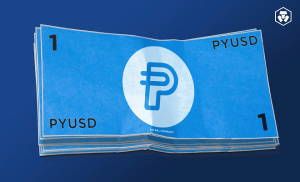The Funded Trader closure: A sign of changing times in prop trading
The Funded Trader, a once highly regarded proprietary trading firm, has suspended its operations and website, leaving the trading community in shock and uncertainty. In this article, we report on the unfolding situation, delving into the root causes that led to the firm’s abrupt pause.

The Funded Trader, known for providing capital to traders willing to navigate “volatile markets” under its “stringent guidelines”, has been a key player in the prop trading industry. However, early signs of trouble began to surface in January when customers reported experiencing slippage in their trades, followed by a slew of complaints regarding payout denials and other operational issues on platforms such as Trustpilot. These incidents have raised alarms and questioned the firm’s reliability and transparency.
As the complaints mounted, PropFirmMatch, a website that rates and recommends proprietary trading firms, suspended The Funded Trader from its list of recommended firms. This suspension came after reports of account access issues, unwarranted drawdown violations, and severe delays in trade executions, leading to financial losses for its users.
The Funded Trader founder Angelo Ciaramello issued a statement on the platform X, appealing to the community’s trust and promising a rebranding and operational overhaul in the near future. However, traders remain highly skeptical due to the company’s abrupt closure without any warning, putting their investments at risk and casting uncertainty over the likelihood of receiving refunds or profit payouts.
The future of The Funded Trader remains uncertain, with the community eagerly awaiting further updates on its proposed rebranding and operational changes.
Lessons to Learn
The prop trading industry has been rocked by the recent and sudden collapses of The Funded Trader and Skilled Funded Traders, events that have caused turmoil within the trading community. As someone deeply embedded in the industry, the CEO of City Traders Imperium provided a thoughtful analysis of why these once-thriving entities have faltered, reflecting on the broader implications for traders and the prop firm ecosystem.
One of the critical issues highlighted was the rapid growth of these firms, which may have led to a detachment from their core customer base – the traders. This growth was partly fueled by aggressive marketing tactics and the leveraging of social influencers, a strategy that, while effective in attracting new traders, may have prioritized scale over sustainable business practices and customer service.
The industry’s reliance on influencers to promote a lifestyle that may not accurately reflect the realities of trading has been critiqued. These marketing strategies often advertise exceptional success stories, attracting individuals more interested in gambling than in developing the skills and discipline required for long-term trading success.
The prop trading sector has faced regulatory and market pressures in recent months, contributing to the instability. The shutdown of My Forex Funds by U.S. regulators, for instance, served as a warning to the industry about the importance of compliance and ethical business practices. Additionally, the withdrawal of major players from the U.S. market and the challenges associated with migrating to new trading platforms have added to the sector’s troubles.
There are indications that financial mismanagement may have played a role in the collapses. The rapid increase in payout requests, driven by large market movements, put a strain on these firms’ liquidity. Allegations of lavish spending by firm owners, even as payout requests were being delayed or denied, have further tarnished their reputations.
Choosing the Right Prop Firm
For traders seeking to partner with a prop firm, there are several pieces of advice. It’s crucial to look beyond the superficial appeal of large payouts and consider the firm’s reputation, management experience, and the sustainability of its business model. Traders should be wary of firms that rely heavily on marketing gimmicks or offer conditions that seem too good to be true.
Kathy Lien, Managing Director of FX Strategy at BKTraders, also warns traders of the perils of investing with prop firms that lack a solid track record and experienced management.
Despite the recent upheavals, there is a belief that the prop trading industry will endure, adapting to the challenges it faces. For those dedicated to building a career in trading, the focus should be on selecting a firm that aligns with their long-term goals and offers a supportive and transparent trading environment.
Futures Trading: A Viable Path to Prop Trading Success?
For traders concentrating on major, liquid markets, Futures prop trading presents a compelling option. The advantages of uniform pricing, straightforward funding terms, and potentially quicker paths to funding make Futures an attractive proposition. However, for those who value customization, the ability to hold positions overnight, or trade a broader array of instruments, Forex trading still holds the most appeal.
Futures Trading: The New Frontier for Prop Traders?
Amidst major shifts happening in the prop trading sector, many Forex traders are thinking about transitioning their focus to Futures trading. This move, influenced by the industry’s upheaval, is seen not only as a strategic shift but also as an adaptation to the evolving market dynamics. Let’s briefly outline the fundamental differences between Forex and Futures prop trading, shedding light on why Futures might offer a better trading experience for many.
Key Differences Between Forex and Futures Prop Trading
- Terms of Engagement: Forex prop firms typically require a one-time fee for an evaluation process, aiming for a specific profit target under strict conditions. Futures prop firms, on the other hand, operate on a subscription model with generally lower entry fees and more attainable profit targets, making the pathway to funding appear more accessible.
- Price Feeds and Execution: Unlike the varied price feeds in the Forex market, which are off-exchange and can differ between firms, Futures trading offers a centralized price feed from highly-regulated and reputable exchanges. This consistency guarantees that every trader has access to identical pricing.
- Trade Sizes and Flexibility: Forex trading allows for highly customized trade sizes, down to a fraction of a lot, offering traders unparalleled flexibility in how they manage their positions. Futures trading, while offering micro and mini contract sizes, lacks the same level of granularity, presenting a more standardized approach to trade size.
- Trading Hours and Strategy: Forex prop trading often accommodates overnight positions, appealing to long-term swing traders. Futures trading typically requires positions to be closed at the end of the trading day, although positions can be reopened shortly after, slightly modifying how swing trading strategies might be implemented.
- Instrument Variety: The Forex market provides a vast array of trading pairs and additional instruments like individual stocks. However, for traders focusing on major markets like stock indices, oil, or gold, Futures trading offers significant advantages in terms of execution quality, leverage, and uniform pricing.
Conclusion
As the prop trading scene keeps shifting, traders should really think about their own trading trading styles, preferences, and goals when picking between Forex and Futures. While Futures trading is heralded as the future of prop trading by some, the decision ultimately rests on the trader’s specific needs and strategic approach to the markets.
That said, the unfolding saga of The Funded Trader and other providers serves as a cautionary tale for traders to vet the firms they choose to trade with thoroughly. With the prop trading industry under scrutiny, especially amidst fears of stringent US regulations, traders globally are advised to seek out more stable and reputable platforms.









